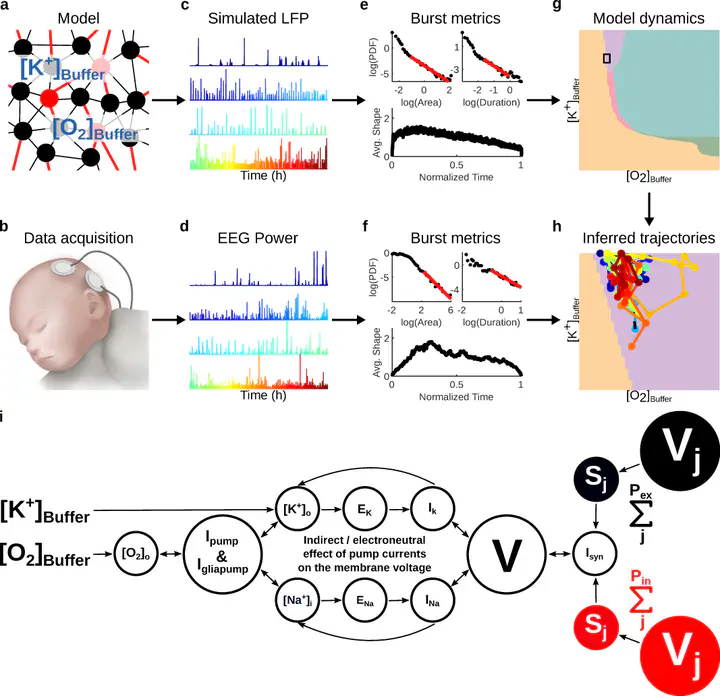New paper: Mechanisms underlying pathological cortical bursts during metabolic depletion
A model for burst suppression in infants

Shrey Dutta’s paper Mechanisms underlying pathological cortical bursts during metabolic depletion is now published in Nature Communications!
Authors: Shrey Dutta, Kartik K Iyer, Sampsa Vanhatalo, Michael Breakspear, James A Roberts.
Abstract:
Cortical activity depends upon a continuous supply of oxygen and other metabolic resources. Perinatal disruption of oxygen availability is a common clinical scenario in neonatal intensive care units, and a leading cause of lifelong disability. Pathological patterns of brain activity including burst suppression and seizures are a hallmark of the recovery period, yet the mechanisms by which these patterns arise remain poorly understood. Here, we use computational modeling of coupled metabolic-neuronal activity to explore the mechanisms by which oxygen depletion generates pathological brain activity. We find that restricting oxygen supply drives transitions from normal activity to several pathological activity patterns (isoelectric, burst suppression, and seizures), depending on the potassium supply. Trajectories through parameter space track key features of clinical electrophysiology recordings and reveal how infants with good recovery outcomes track toward normal parameter values, whereas the parameter values for infants with poor outcomes dwell around the pathological values. These findings open avenues for studying and monitoring the metabolically challenged infant brain, and deepen our understanding of the link between neuronal and metabolic activity.